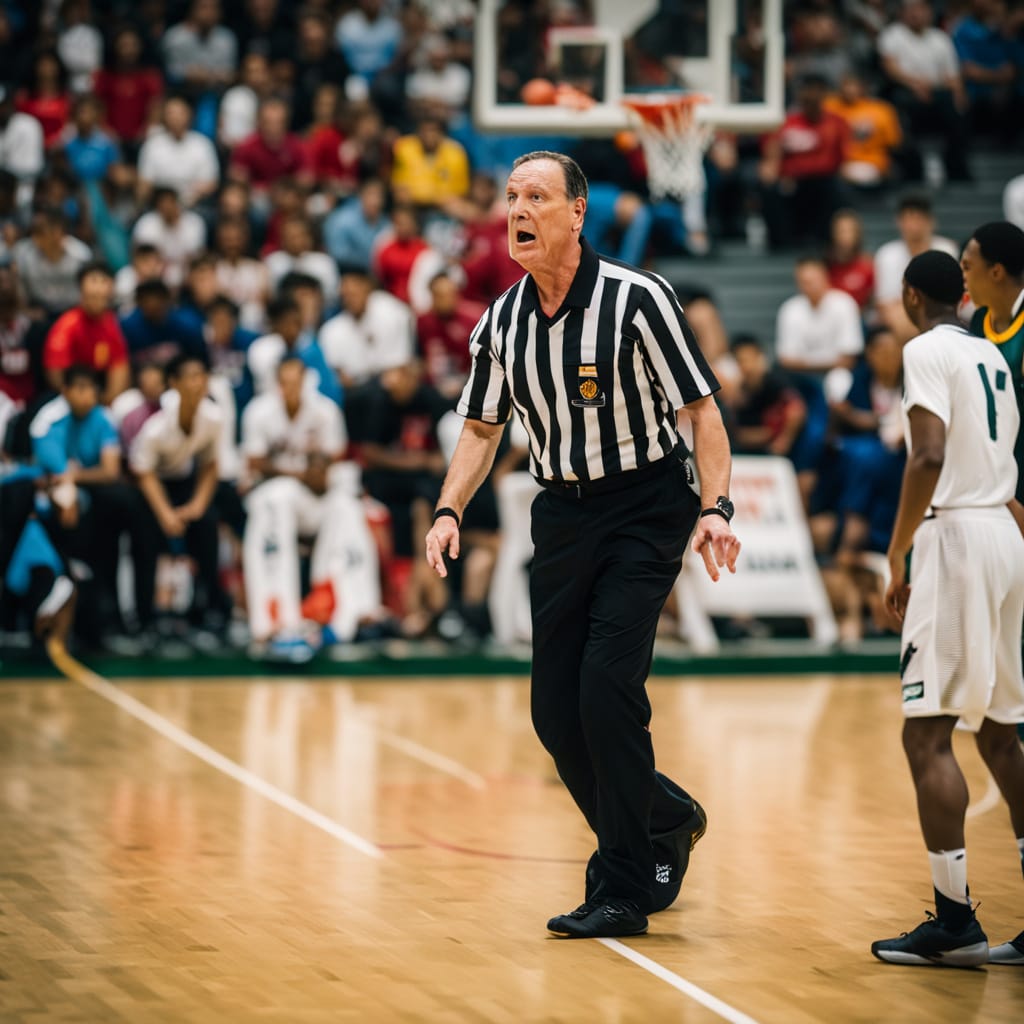So You Want To Be A Referee
So You Want to Be a Referee: Everything You Need to Know About Officiating in Sports

If you’ve ever thought, so you want to be a referee, you’re not alone. Many people dream of stepping onto the field or court and officiating matches at various levels. Referees and other sports officials hold one of the most critical roles in ensuring fairness, safety, and integrity. But where did this role originate, and how do you join the ranks of these unsung heroes? Let’s dive deep into the fascinating world of referees, from their historical origins to how you can become one, along with the advantages and challenges of officiating in sports.
The Origins and History of Referees in Sport
The concept of refereeing dates back centuries, with its roots embedded in early civilizations. Ancient sports, like Greek wrestling and Roman gladiatorial games, often had officials to maintain order. In many instances, these early officials played a less formal role compared to modern referees. Their primary job was to resolve disputes rather than actively enforce rules.
The development of organized sports in the 19th century led to the formalization of refereeing. Soccer, for instance, was one of the earliest modern sports to introduce referees. When the Football Association (FA) was established in England in 1863, the need for impartial oversight grew. Early soccer matches were often self-officiated by team captains. Disagreements were settled by consensus or by appeal to an observer. As competition grew more intense, neutral referees became essential. This trend spread to other sports such as rugby, tennis, and cricket.
In the United States, the role of referees gained importance with the rise of sports like baseball, basketball, and American football. For example, baseball umpires were introduced in the 19th century to ensure fair play. By the early 20th century, referees had become indispensable across all major sports. Their role had evolved from passive oversight to active enforcement of rules and game management.
Today, referees and other officials are integral to nearly every sport played globally. Their presence ensures not only the smooth running of games but also the safety and enjoyment of athletes and spectators.
Types of Referees and Officials Across Sports
One of the most intriguing aspects of officiating is that there are various types of referees, each with distinct responsibilities depending on the sport. While we often use “referee” as a catch-all term, the role can vary significantly between sports. Let’s explore the different types of referees and officials in sports across the world.
1. Soccer Referees
In soccer, the referee is the primary official, tasked with enforcing the rules, making calls, and controlling the game’s pace. The referee is supported by two assistant referees (formerly called linesmen), who monitor offside calls and out-of-bounds plays. In higher-level matches, there is also a fourth official, who manages substitutions and administrative tasks. With the introduction of the Video Assistant Referee (VAR) system, technology has also become an official “eye” on the game.
2. Basketball Officials
Basketball officials include referees, umpires, and table officials. In professional leagues like the NBA, three referees work together on the court to cover different areas. They are responsible for enforcing the rules, managing fouls, and ensuring fair play. Additionally, table officials handle game clock management, scoring, and substitutions.
3. American Football Officials
American football is unique because it requires multiple officials, each with specialized responsibilities. These include the referee, umpire, head linesman, line judge, field judge, side judge, back judge, and the replay official in higher levels. Each has a specific area of the field and aspects of the game to monitor, such as penalties, timekeeping, and the legality of plays.
4. Baseball Umpires
In baseball, umpires are responsible for enforcing the rules and making calls on plays. The home plate umpire has the most significant role, calling balls and strikes and overseeing the game’s pace. Field umpires monitor plays on the bases and make judgment calls on hits and fielding.
5. Tennis Umpires
Tennis officiating involves several key roles. The chair umpire oversees the match, calling points and ensuring the rules are followed. Line judges assist by determining whether a ball is in or out. In major tournaments, the Hawk-Eye system provides a technological backup for close calls.
6. Combat Sports Referees
In combat sports like boxing, mixed martial arts (MMA), and wrestling, the referee’s role is critical. They ensure that fighters follow the rules and stop the fight if it becomes dangerous. Referees in these sports need a deep understanding of the rules and a keen eye for safety.
7. Other Sports Officials
Almost every sport has its form of officiating. Cricket has umpires, athletics has judges, ice hockey has referees and linesmen, and volleyball has a team of referees and line judges. Each sport requires officials to master the intricacies of their particular game.
Why Referees and Officials Are Essential to Sports
It is impossible to overstate the importance of referees and other officials in sports. These individuals ensure that games are fair, that the rules are enforced, and that all participants are kept safe. Without referees, organized sport would devolve into chaos, with disputes frequently arising over infractions, scoring, and even game outcomes.
First and foremost, referees uphold the integrity of competition. By applying the rules consistently, they allow athletes to focus on their performance rather than worrying about bias or unfairness. A well-officiated game ensures that the best team or individual wins based on merit.
Referees and officials also play a vital role in ensuring the safety of participants. This is particularly true in contact sports like rugby, football, and combat sports, where improper conduct or rule violations can lead to serious injuries. Officials are trained to intervene when necessary to prevent harm and ensure the sport remains within the bounds of safety.
Moreover, referees help maintain the pace and structure of a game. They ensure that games run smoothly, managing the time and stopping play when necessary. They also deal with unsportsmanlike behavior, ensuring that the spirit of competition is respected.
In many sports, referees are also crucial in communicating with players and coaches. They provide explanations for calls, which helps maintain transparency and reduces misunderstandings. This communication is essential for preserving the relationship between officials and athletes, particularly in high-stakes competitions.
How to Become a Referee or Other Type of Official
If you’ve reached this point and are still thinking, so you want to be a referee, the good news is that there are various paths to becoming one. The process varies depending on the sport and level of competition, but there are several general steps you can follow.
1. Start by Learning the Rules
The first step is to become thoroughly familiar with the rules of the sport you want to officiate. Many sports organizations and governing bodies offer rulebooks and resources that you can study. Understanding the rules is essential, as this is the foundation of officiating.
2. Take a Referee Certification Course
Most sports require referees to be certified. This typically involves attending a referee certification course, which covers the rules, techniques, and best practices for officiating. These courses are offered by national and international governing bodies, such as FIFA for soccer or the NBA for basketball. In many cases, you can find local or regional organizations that offer entry-level courses.
3. Gain Experience Through Lower-Level Competitions
Before officiating professional or high-level games, referees usually begin by officiating lower-level competitions. This could involve youth leagues, amateur games, or local club matches. These games provide valuable experience and allow referees to hone their skills.
4. Work Your Way Up the Ladder
As you gain experience, you can apply for higher-level certifications and work your way up the officiating ladder. Many sports have a structured system where referees progress through levels based on experience and performance. For instance, in soccer, referees start at the grassroots level and can advance to officiating professional matches or even international competitions.
5. Stay Physically Fit
Officiating can be physically demanding, especially in sports like soccer, basketball, and American football. Referees need to keep up with the pace of the game, which requires good fitness. Staying in shape will not only help you perform better but may also be a requirement for certain certifications.
6. Continue Learning and Improving
The best referees are those who continue learning and improving throughout their careers. Refereeing clinics, workshops, and ongoing education programs are available in most sports. Staying updated on rule changes and improving your decision-making skills are essential for long-term success.
The Pros and Cons of Being a Referee
Officiating sports comes with numerous rewards but also significant challenges. Here, we break down the pros and cons of being a referee or other type of official.
Pros of Being a Referee
- Involvement in the Game You Love Officiating allows you to stay involved in a sport you are passionate about. You get to witness games up close and play a key role in ensuring they run smoothly.
- Opportunities for Advancement Refereeing offers numerous opportunities for advancement. With experience and dedication, referees can progress to officiating at higher levels, including professional leagues and international competitions.
- Develop Valuable Skills Officiating helps you develop essential skills like decision-making, communication, leadership, and conflict resolution. These skills are valuable not just in sports but in other aspects of life.
- Financial Compensation While entry-level referees may not make much, higher-level officiating can be quite lucrative. Professional referees in leagues like the NFL or NBA earn significant salaries.
- Fitness and Travel Referees in physically demanding sports benefit from staying in shape, and higher-level officials often have the opportunity to travel internationally for major tournaments.
Cons of Being a Referee
- Criticism and Pressure Referees are often the target of criticism from players, coaches, and fans. Making the right call under pressure can be challenging, and mistakes are inevitable. The scrutiny can be overwhelming, especially at higher levels.
- Physical and Mental Demands Officiating requires physical fitness, especially in fast-paced sports like basketball and soccer. Mentally, referees must make quick decisions, which can be draining.
- Inconsistent Schedule Many referees work on a part-time basis and may have an inconsistent schedule. Games are often on weekends or evenings, which can interfere with personal or family time.
- Slow Career Progression It can take years to work up the ranks to higher levels of officiating. In many cases, you may need to officiate countless lower-level games before being considered for professional leagues.
The Future of Refereeing and Officiating in Sports
As technology and sports evolve, so does the role of referees. One of the most significant trends in modern sports officiating is the integration of technology to assist referees. Systems like VAR in soccer, Hawk-Eye in tennis, and instant replay in American football are examples of how technology is helping to reduce human error in officiating.
However, the future of refereeing goes beyond just technology. There is also a growing focus on improving the training and support that referees receive. More resources are being devoted to mental health, fitness, and continued education, helping referees maintain peak performance throughout their careers.
Moreover, the issue of diversity in officiating is gaining attention. Many sports organizations are working to recruit more women and underrepresented minorities into officiating roles, ensuring that the referee workforce is as diverse as the athletes they oversee.
Looking ahead, the future of refereeing is likely to include a blend of human judgment and technological assistance. Referees will continue to play a crucial role in maintaining the integrity of sports, but technology will help minimize mistakes and ensure fairness.
Conclusion
So you want to be a referee? It’s a rewarding yet challenging journey that offers opportunities for personal growth, career advancement, and involvement in the sports you love. While officiating is not without its difficulties, the role of referees and other officials is indispensable. Without their dedication and expertise, the world of sports would lack the fairness, structure, and excitement that we all cherish.
Whether you’re drawn by the love of the game, the desire to contribute, or the pursuit of new challenges, the path to becoming a referee is filled with opportunities. As sports continue to evolve, so too will the role of the referee, ensuring that the games we love remain fair, exciting, and safe for all.






